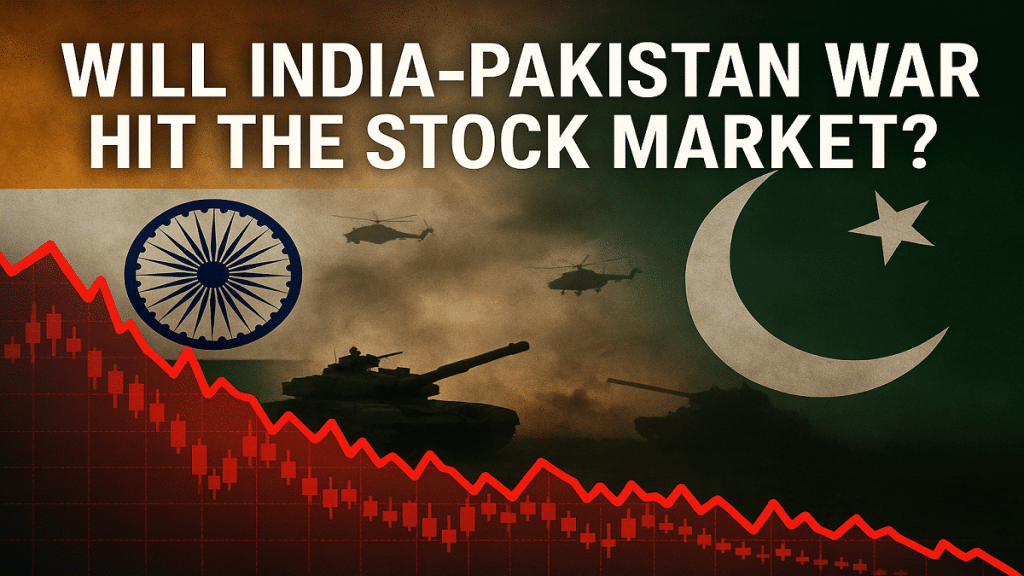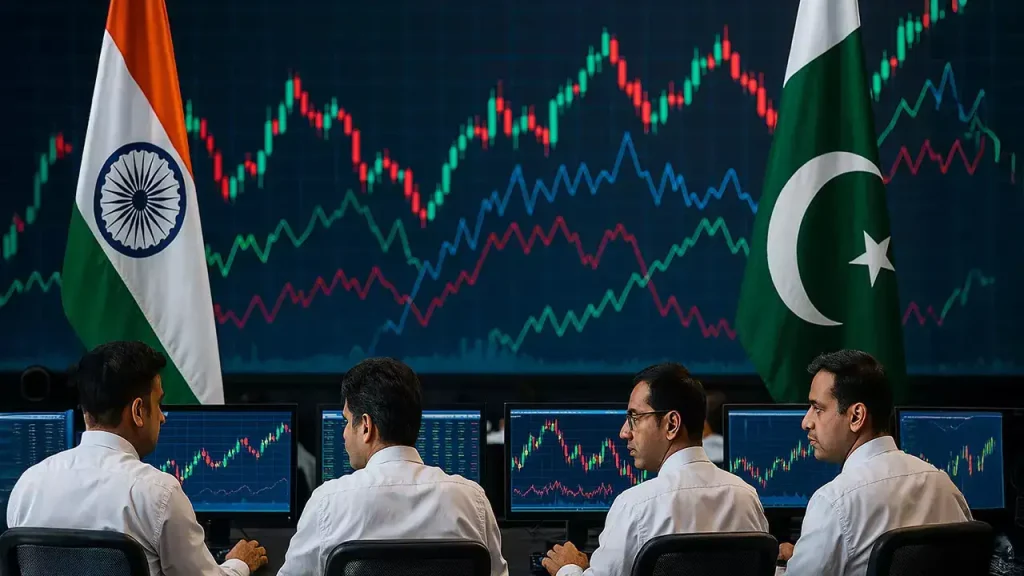India Pakistan war : Geopolitical tensions between India and Pakistan have long been a source of anxiety for investors. Whenever headlines signal military confrontations or war-like situations, the stock market often reacts swiftly. But what really happens to the Indian stock market during such times? In this post, we explore the impact of an India-Pakistan war on the stock market, backed by data, historical patterns, and investor psychology.
In the early hours of a tense morning, India launched Operation Sindoor, a strategic airstrike aimed at neutralizing terrorist bases across the border. While the political and military implications were immediately evident, the financial markets also reacted swiftly to the news.
we break down the impact of Operation Sindoor on the Indian stock market, analyze historical patterns of war-related events, and explain how investors typically respond to such geopolitical shocks.
Immediate Market Reaction to Operation Sindoor
The announcement of the airstrike triggered a wave of uncertainty across Dalal Street:
- Sensex dropped over 800 points intraday
- Nifty breached key support levels, reflecting panic selling
- Rupee weakened against the US Dollar due to foreign outflows
- Volatility Index (VIX) spiked, indicating heightened investor fear
Immediate Impact on Stock Market
1. Market Volatility Increases
The moment news breaks of cross-border tension, Sensex and Nifty typically experience sharp drops. This is largely driven by panic selling, where investors rush to liquidate positions out of fear.
2. Foreign Investors Pull Out
Foreign Institutional Investors (FIIs) often exit emerging markets during geopolitical unrest, leading to capital outflows, depreciation of the rupee, and a fall in stock prices.
3. Banking and Financial Stocks Take a Hit
Banks and NBFCs are highly sensitive to macroeconomic uncertainty. War situations usually lead to:
- Rupee depreciation
- Inflation concerns
- Economic slowdown risks
This affects the entire financial sector.

Sectors Most Affected During War-Like Scenarios
❌ Negatively Affected Sectors:
- Banking & Finance
- Travel & Tourism
- Aviation
- Real Estate
- Automobile
✅ Sectors That May Benefit:
- Defense & Arms Manufacturing
- Oil & Gas (Short term price spike)
- Gold (as a safe haven asset)
- FMCG & Pharma (Defensive stocks)
Historical Precedents: What We Can Learn
India has faced similar moments in recent history:
| Event | Year | Market Impact |
|---|---|---|
| Kargil War | 1999 | Initial fall, recovery in weeks |
| Uri Surgical Strike | 2016 | Short dip, bounced back within days |
| Balakot Airstrike | 2019 | Intraday volatility, ended flat |
| Operation Sindoor (Current) | 2025 | Immediate drop, followed by selective recovery |
Takeaway: Markets tend to react emotionally short term but stabilize once clarity emerges.
Investor Psychology in War-Like Situations
During conflict, fear dominates. Here’s how typical investors behave:
- Retail investors panic sell
- Long-term investors hold or buy the dip
- Institutional investors hedge or reduce exposure
Expert investors often look for value buying opportunities during dips caused by non-economic factors.
Should You Invest During Wartime Volatility?
👍 Yes, If You Are a Long-Term Investor
War-driven dips are usually temporary unless the conflict leads to wider economic disruptions.
👎 No, If You Are Risk-Averse or Need Liquidity Soon
Short-term traders or retirees needing funds soon should be cautious.
Tips to Safeguard Your Portfolio During Conflicts
- Diversify across sectors (especially defensive ones like FMCG, pharma)
- Invest in gold ETFs or sovereign gold bonds
- Avoid high-risk speculative bets
- Keep some cash ready for buying opportunities
- Don’t make decisions based on fear
Conclusion: Don’t Let Fear Dictate Investment
An India-Pakistan war can trigger short-term market panic, but historical trends suggest that Indian markets are resilient. Instead of reacting emotionally, investors should focus on fundamentals, long-term goals, and sector-specific risks. Geopolitical risks are real, but they often present buying opportunities for those with patience.



